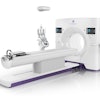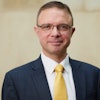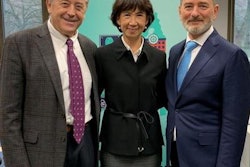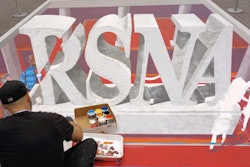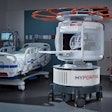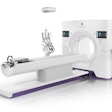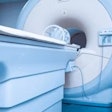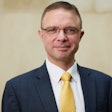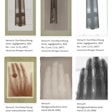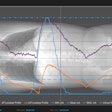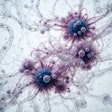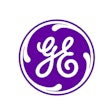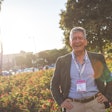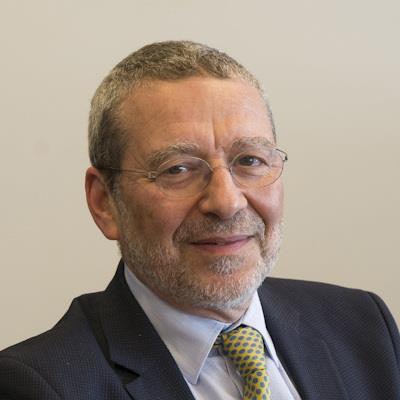
When contemplating the future, we should not look in a rear-view mirror – we need to be open to the changing environment. That was the central message of a visionary lecture given by Dr. Gabriel Krestin, PhD, at an evening reception held in Chicago on 28 November.
"The challenges we face in healthcare can only be solved through technological advances," he told AuntMinnieEurope.com ahead of the event. "Whether that is in robotics, data science, biotechnology or chemistry, it doesn't matter, but we need those breakthroughs."
This was true during the past 40 years, and it will remain true for the coming 40 years -- not only in radiology but also in the whole of medicine, added Krestin, who is professor emeritus of radiology, Erasmus MC, University Medical Centre Rotterdam, the Netherlands.
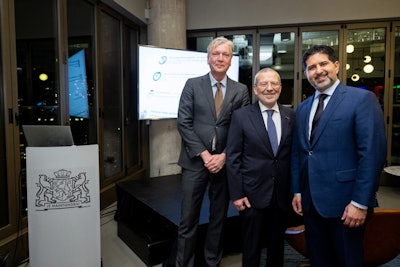 Speakers from the RSNA Dutch event. From the left: Maarten Boef, deputy ambassador of the Netherlands, based in Washington; Dr. Gabriel Krestin; and Hicham Shatou, founder and CEO of LeQuest. Photo courtesy of LeQuest.
Speakers from the RSNA Dutch event. From the left: Maarten Boef, deputy ambassador of the Netherlands, based in Washington; Dr. Gabriel Krestin; and Hicham Shatou, founder and CEO of LeQuest. Photo courtesy of LeQuest.In his Chicago talk, Krestin listed the following six main change drivers in healthcare today:
- Advances in biomedical knowledge -- Mortality is decreasing, but can we cope with all those chronic diseases?
- Ageing population -- How should we care for all those elderly patients with multiple co-morbidities?
- Patients' expectations -- Healthcare consumerism is on the rise, but how can we deal with misinformed patients?
- Health workforce shortage -- How can we replace the missing radiographers and nurses?
- Need for cost-containment -- Who should pay for all that?
- New technologies -- Are there any disruptive innovations on the horizon?
The main solution here is AI, particularly automation of systems (software, technology, innovation) and integration (expertise, data, training, education). Starting up and scaling up -- as well as obtaining the necessary help, support, and advice -- are essential, he said.
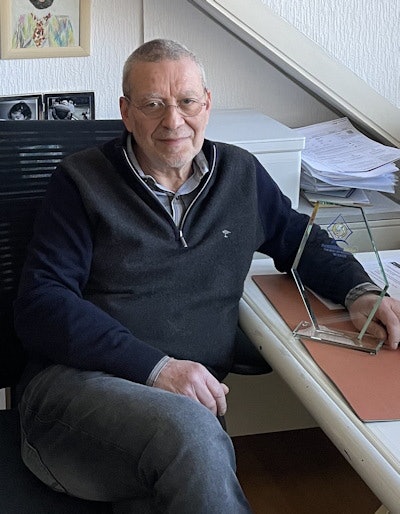 Dr. Gabriel Krestin, PhD, received the Most Influential Radiology Researcher trophy in the 2022 EuroMinnies awards scheme.
Dr. Gabriel Krestin, PhD, received the Most Influential Radiology Researcher trophy in the 2022 EuroMinnies awards scheme.In functional respiratory imaging, Krestin outlined the potential applications of quantitative outcome parameters. He also described an integrated suite that aims to bring MRI closer to the patient to support faster and earlier detection of neurological deficits and is designed to support point-of-care MRI.
It's important to remember two-thirds of the world's population still has no meaningful access to medical imaging and existing medical imaging systems are too expensive and complex for mass deployment, he added.
Attitudes to AI
"If you were to ask me: Are we doing enough to educate the future generations of radiologists on AI? I would say it is never enough, but we are trying our best," Krestin told AuntMinnieEurope.com.
The good news is that the younger generation is receptive to learning about data science and AI, he continued.
"They all grew up with more and more powerful computers at their fingertips and are more literate in this field than my generation can ever become," he noted. "What they need, however, is input from multiple disciplines: from computer scientists for AI, from biologists for understanding the molecular pathways of diseases, from physicists for understanding imaging physics, and so on."
More meaningful interactions can then take place with all those highly specialized clinicians who have a deep knowledge in a niche area of medicine, according to Krestin, who still works as scientific director of the European Institute for Biomedical Imaging Research (EIBIR).
"To be of added value for them, radiologists need to understand their needs and know as much as them about those respective diseases," he said. "It is almost impossible to ask from the next generation of radiologists to learn and be trained in all that, so they need to subspecialize. Only subspecialized experts will be taken seriously by referring physicians."
This may be different in rural areas or outpatient settings when your imaging practice works only for primary care physicians, he conceded.
The Chicago reception was held at the Dutch consulate in Chicago to celebrate Krestin's career and contribution to global radiology. It was hosted by the Consulate General of the Kingdom of the Netherlands and LeQuest, makers of medical simulation technology. Maarten Boef, Deputy Ambassador to the U.S., and Hicham Shatou, CEO & Founder of LeQuest, also spoke at the event.
Krestin now serves as a board director of LeQuest and FLUIDDA, and he acts as a scientific advisor to LeQuest, FLUIDDA, Gleamer.AI, Nanox, and Synaptive Medical. He joined most of these companies between January and April 2022, having retired as department head at Erasmus MC in December 2021.

